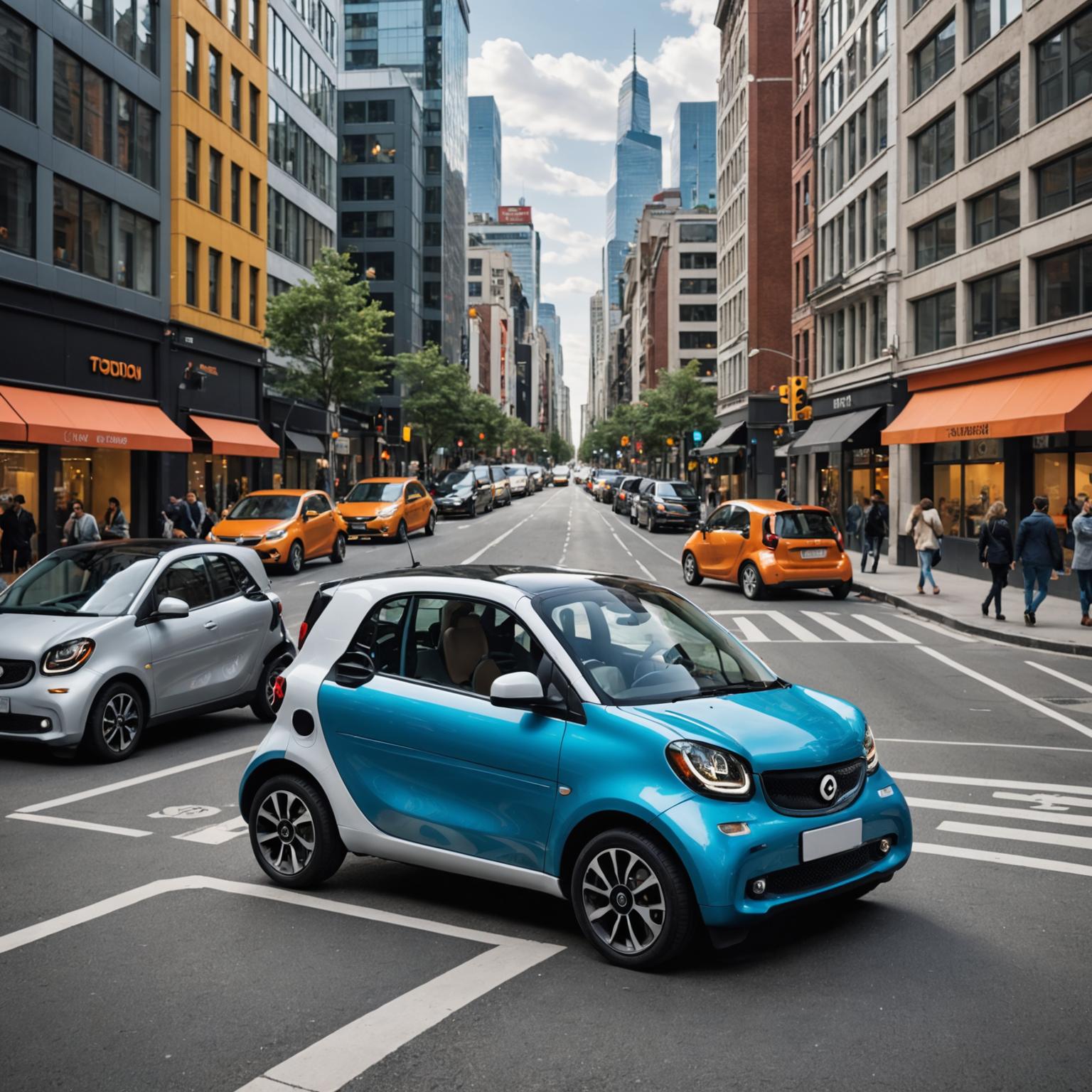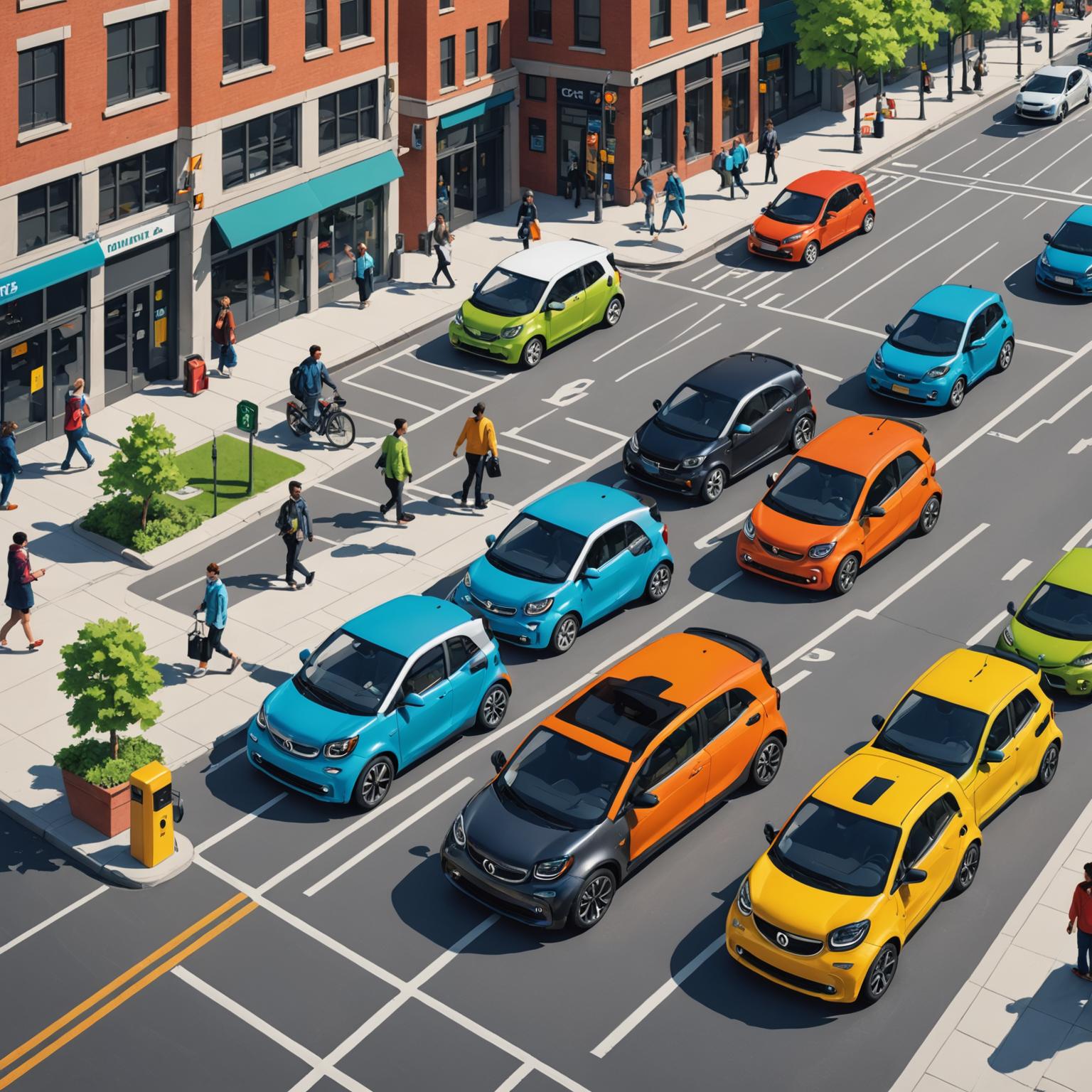When considering a vehicle designed for urban mobility, few cars are as iconic as the Smart car. Known for its incredibly compact size and ability to navigate crowded city streets with ease, one of the most common questions potential buyers have relates to the smart car weight. This figure is not just a simple number; it’s a key aspect of the vehicle’s design philosophy, balancing safety, efficiency, and performance in a tiny package. The weight can vary significantly depending on the specific model, generation, and whether it’s a gasoline-powered or an all-electric version.
A Closer Look at Smart Car Models and Their Weights
The term “Smart car” most often refers to the Smart Fortwo, a two-seater microcar. However, the brand has also produced other models, such as the four-seater Forfour. The curb weight, which is the total weight of the vehicle with all standard equipment and necessary operating fluids but without any passengers or cargo, provides the most accurate comparison. For instance, the third-generation gasoline-powered Fortwo coupe weighs around 1,940 pounds (about 880 kg). In contrast, its all-electric counterpart, the Smart EQ Fortwo, is considerably heavier due to its battery pack, tipping the scales at approximately 2,414 pounds (about 1,095 kg). The larger Forfour model naturally has a higher smart vehicle weight, typically ranging from 2,150 to 2,646 pounds (975 to 1,200 kg) depending on the powertrain and equipment. This data shows a clear evolution and variation within the brand’s lineup, influenced heavily by technological advancements and consumer needs.
What Determines the Weight of a Smart Car?
Several critical components contribute to the overall smart car weight. The most significant is the Tridion Safety Cell, a high-strength steel chassis that acts as a rigid protective cage for the occupants. This feature is fundamental to the car’s impressive safety ratings, but the robust steel construction adds substantial weight relative to the car’s small dimensions. To counteract this, Smart engineers used lightweight, dent-resistant plastic body panels for the exterior, which also have the benefit of being easily replaceable. Another major factor is the powertrain. As mentioned, the lithium-ion battery required for the electric EQ models adds several hundred pounds compared to the small gasoline engines of previous generations. Finally, optional features like a panoramic glass roof, upgraded audio systems, and larger alloy wheels can incrementally increase the final smart vehicle weight.
How Weight Impacts Performance and Efficiency
The relatively low weight of Smart cars is central to their character and purpose. In gasoline models, a lighter frame translates directly to better fuel economy, a key selling point for a city car. For the electric EQ models, managing weight is crucial for maximizing battery range on a single charge. The car’s lightness is also a primary reason for its celebrated agility. The low smart vehicle weight, combined with a short wheelbase and an incredible turning circle, makes it exceptionally nimble. This allows drivers to maneuver through dense traffic and fit into parking spots that are inaccessible to larger vehicles. While some may associate lightness with compromised safety, the design of the Tridion cell ensures energy from an impact is distributed away from the occupants, proving that clever engineering is more important than sheer mass for passenger protection in its class.
The Final Weigh-In on Smart Cars
In conclusion, the smart car weight is a fascinating subject that reflects a masterclass in automotive engineering. It is a deliberate compromise between the robust Tridion Safety Cell for protection and the use of lightweight materials to ensure agility and efficiency. Whether you’re looking at a classic gasoline Fortwo or a modern electric EQ model, the weight is tailored to deliver a specific urban driving experience. Far from being just a statistic, the vehicle’s weight is a core element of its identity, enabling it to be the practical, safe, and fun-to-drive city companion that has won over drivers around the world.

